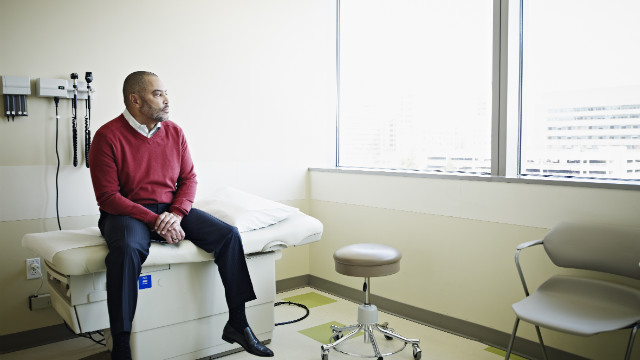March is National Colorectal Cancer Awareness Month. According to the American Cancer Society, the colon cancer death rate in this country could be cut by more than half if Americans simply followed recommended screening guidelines.
Early detection and treatment are critical. If caught early, colorectal cancer is 90 percent curable. If precancerous polyps are found during screening, the disease is often altogether preventable. Because colorectal cancer can develop with no signs or symptoms, a colonoscopy could serve as a life-saving test.
New colon cancer guidelines: Get screened at 45.
Men and women are affected equally by colorectal cancer. For patients of average risk with no family history, it is now recommended that screenings for colon cancer begin at age 45. Follow-up screenings are every five to 10 years, even for people who feel perfectly healthy. If you have a family history of cancer, are experiencing pain or bleeding, or a previous screening revealed polyps, your doctor may recommend that you be screened earlier or more frequently.
A colonoscopy is not as hard as you think.
There’s no need to feel embarrassed or ashamed during a colonoscopy. It is your doctor’s job to perform these lifesaving screenings. Every effort is made to help patients feel comfortable during the painless procedure.
- You’ll be asked to follow a clear liquid diet the day before your procedure. This means only water, clear broth, soda, tea, coffee (without milk/creamer), clear juice (without pulp), Jell-O, popsicles and other flavored drinks.
- Instructions will be provided on using a laxative mixture to empty your bowel so that your colon can be viewed clearly during the procedure.
- During the colonoscopy, your doctor will look at the inner lining of your large intestine (which includes your rectum and colon). A thin, flexible tube called a colonoscope is inserted while you are semi-sedated.
- Most patients have very little awareness that the procedure is taking place. You’re done within an hour.
A colonoscopy is the most effective way to prevent, detect and diagnose colon cancer. Along with functioning as a screening test to check for cancer or precancerous polyps in the colon or rectum, a colonoscopy can also help find ulcers, tumors and areas of inflammation or bleeding. It is important to be screened for colon cancer even if you are not currently experiencing pain or bleeding.
Colon Cancer Risk Factors
Even if you have no family history of colorectal cancer or polyps, you are at increased risk if you…
- Are 45+ years of age
- Are overweight
- Do not stay physically active
- Smoke and/or excessively consume alcohol
- Eat a lot of red meat
- Have diagnosed or undiagnosed Type 2 diabetes
- Have Crohn’s disease or ulcerative colitis
About Dr. Orkin
Bruce A. Orkin, MD, is a board-certified colorectal surgeon and is the program director of the colorectal fellowship at AdventHealth Medical Group. For more information and to book an appointment with Dr. Orkin, visit GetScreenedToday.com or call (407) 932-6204.





Comments